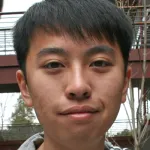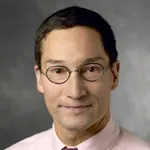
Home Department: Biology and Symbolic Systems
Supported by: Anonymous Donor
Mentor: Peter Kao, Medicine (Pulmonary & Critical Care Medicine)
Timothy Wu is studying mechanisms by which cancers inactivate normal immune surveillance including activating the programmed cell death receptor pathway (PD-1). Timothy will use CRISPR/Cas9 technology to disrupt specific nuclear proteins, NF45 and NF90, that control PD-1 expression. The strategic goal is to restore immune responses against endogenous cancers.
Poster presented at the Stanford Bio-X Interdisciplinary Initiatives Symposium on August 24, 2016:
Dynamic Binding of Novel Transcription Factors NF45 and NF90 to PD-1 Promoter upon T Cell Activation
Timothy Ting-Hsuan Wu1, LingFang Shi2, Peter N. Kao2
[Departments of Biology1 and Medicine (Division of Pulmonary & Critical Care Medicine)2, Stanford University]
Home Department: Biology and Symbolic Systems
Supported by: Dean of Research
Mentor: Peter Kao, Medicine (Pulmonary & Critical Care Medicine)
Timothy Wu is studying newly discovered transcription factors ILF2 and ILF3. They regulate genes essential to cell growth, proliferation, and cell cycle progression. The hypothesis is that these genes, when not properly regulated, may have potential to cause normal cells to become cancer cells. Specifically, he is responsible for using new technologies of CRISPR/dCas9 and Chromatin Immunoprecipitation to induce abnormal expression of ILF2 and ILF3 to evaluate their impact on other genes, and monitor any change in the growth or behavior of the cell.
Poster presented at the Stanford Bio-X Interdisciplinary Initiatives Symposium on August 26, 2015:
Utilizing Inducible CRISPR Interference for Functional Study of ILF2 & ILF3 in Cell Growth and Proliferation
Timothy Ting-Hsuan Wu1, LingFang Shi1, Peter N. Kao1
[Department of Medicine (Division of Pulmonary & Critical Care Medicine)1, Stanford University]

